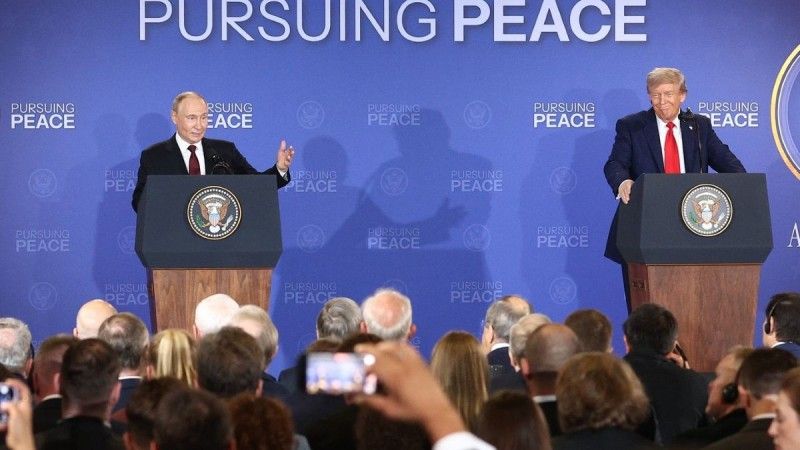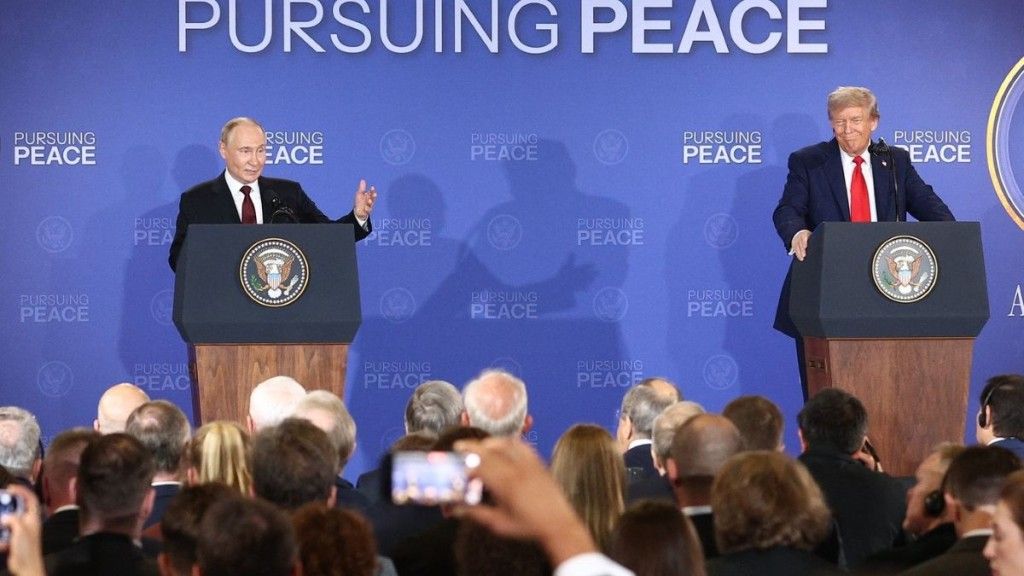
Photo. Aut: en.kremlin.ru
Copy link
Send email
America’s long-term geopolitical vision seems to be shrinking to anti-drug sweeps and mass deportations.
According to a recent report in „
Politico
„, the new U.S. National Defense Strategy, scheduled to be unveiled by the end of this month, will most likely place more emphasis on domestic issues than external foes, prioritising counternarcotics operations over confrontation with hostile state actors.
In previous editions, the annually published document, invariably depicted China and Russia as the main, present, and future threats to the United States« vital interests on the global stage. Until now the focus has been on both countries« militarization, intimidating rhetoric, and increasing physical aggressiveness, especially after Russia’s attack on Ukraine. From now on U.S. decision-makers and policymakers, Pentagon officials and diplomats, are supposed to pay more attention to fentanyl consumption in San Francisco than to Chinese nuclear silos.
The writing has been on the wall for a while. It was revealing to hear President Trump repeatedly using the term »invasion«, while referring to waves of illegal immigrants crossing the southern border. Or defining the opioid crisis as the principal menace to America’s security. Or lambasting Democratic governors and mayors for „losing the war against crime” in their respective states and cities. Seemingly, the U.S. president views Gavin Newsom, the governor of California, JB Pritzker, the governor of Illinois, and Muriel Bowser, the mayor of Washington D.C., as more dangerous than his „dear friends”, Xi Jinping and Vladimir Putin. Last week Trump posted a bizarre meme on Truth Social, imitating Robert Duvall’s famous „I-Love-the-Smell-of-the-Napalm-in-the-Morning” line and apparently threatening to deploy troops to Chicago. If my memory doesn’t fail me, the U.S. leader has never been so explicit as regards world’s dictators (Iranian ayatollahs being probably the only exception).
Of course, sometimes this anti-drug and anti-crime crusade does translate into the projection of power outside of U.S. boundaries. A flotilla of American warships is now approaching the shores of Venezuela, ruled by Nicolás Maduro, accused by the current administration of drug trafficking. On September 2nd an American missile blew up a smuggling boat, carrying a drug load and operated – allegedly – by members of the notorious Tren de Aragua gang. Pete Hegseth, the Secretary of War, would be more than happy to obliterate a few meth labs in Mexico (his ambition has never materialized, but by all accounts it was a close call).
Isolationist tendencies among Republicans are by no means a new phenomenon. However, the United States is now turning inwards much more rapidly than it used to at several stages of its history. The difference lies in the scale of justification. Nowadays it is much easier for isolationists to explain retreat, cuts, and savings to the wider public, if the real and palpable threat literally lurks around the corner. It is politically more expedient to denounce street violence in NYC than to condemn Putin for killing civilians in Kyiv. It is more convenient to criticise Europe for not „stepping up” than to effectively deter China.
Unfortunately, isolationists have always had difficulty learning from the past. Fentanyl is terrible, but addiction to geopolitical illusions is even worse.
Author: amb. Marek Magierowski
